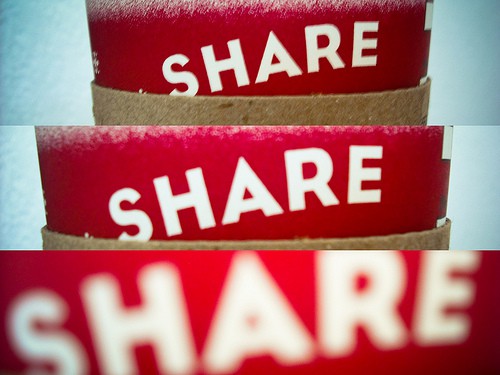With the sharing economy success stories cranking out of Airbnb, Uber and Barclaycard Ring, it’s becoming easier to see the growing tide of collaborative change among businesses. Companies are no longer impeded by physical boundaries. Social media and new technology promote openness and affords people the opportunity and strength to engage in deeper conversations.
Jeremiah Owyang, industry analyst and web strategist, calls the collaborative economy the next phase of social business. It’s “an economic model where ownership and access are shared between people, start-ups and corporations.” Toyota rents cars from dealership lots. Patagonia partnered with eBay to encourage customers to buy and sells its used products. NBC partnered with Yerdle, a start-up founded by former Walmart executives to foster peer-to-peer sharing. Nearly every industry is adopting some kind of collaboration.
The advertising challenge
The challenge to us in advertising is generating innovations, more specifically innovations that foster economic growth. We must focus more on creating something that facilitates new value from existing resources in groups rather than focusing on the needs and habits of the individual consumer. This involves infrastructure, motivation and, most importantly, reward for sharing, collaborating or contributing. The critical part is to develop a social dynamic between abundant supply and unmet demand.
What about B2B?
To embrace the collaborative economy, B2B companies can start by nurturing long-term relationship with customers. Just because a customer purchased once doesn’t mean they’ll invest their money again. What benefits or exclusive reward can you offer your customers to encourage a long-term relationship punctuated by a promise to buy again and again. Leverage the established relationship with your loyal customers to source new ideas, innovations and more importantly collaborate.
GE is partnering with Quirky, an online collaboration platform, to invite their communities to invent and develop connected devices for the home in areas such as home monitoring, home health, security and appliances and lighting using advanced manufacturing tools and technologies. While the collaboration is focused on home devices for consumers, it could easily transfer to the B2B world by opening up a B2B brand to new ideas and new audiences.
Start small
If you’re not ready to plunge into the collaborative economy quite yet, try to start small. Pick a new project you’re working on and invite a small group of customers to perform a beta test or offer insights. Their opinions might prove to be extremely helpful. Not ready to involve your customers just yet? Seek the opinions of co-workers you might not typically approach or host a brainstorm or innovation session. New ideas and a fresh perspective might be just what you need to kickstart your own collaborative change.
For more in-depth information about the collaborative economy, I encourage you to visit Jeremiah Owyang’s blog. Do you think the sharing economy is the future? Is your company engaging in deeper conversations?




